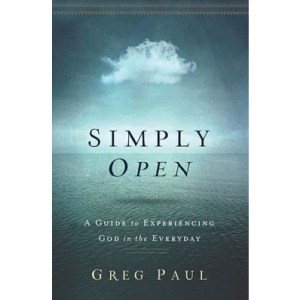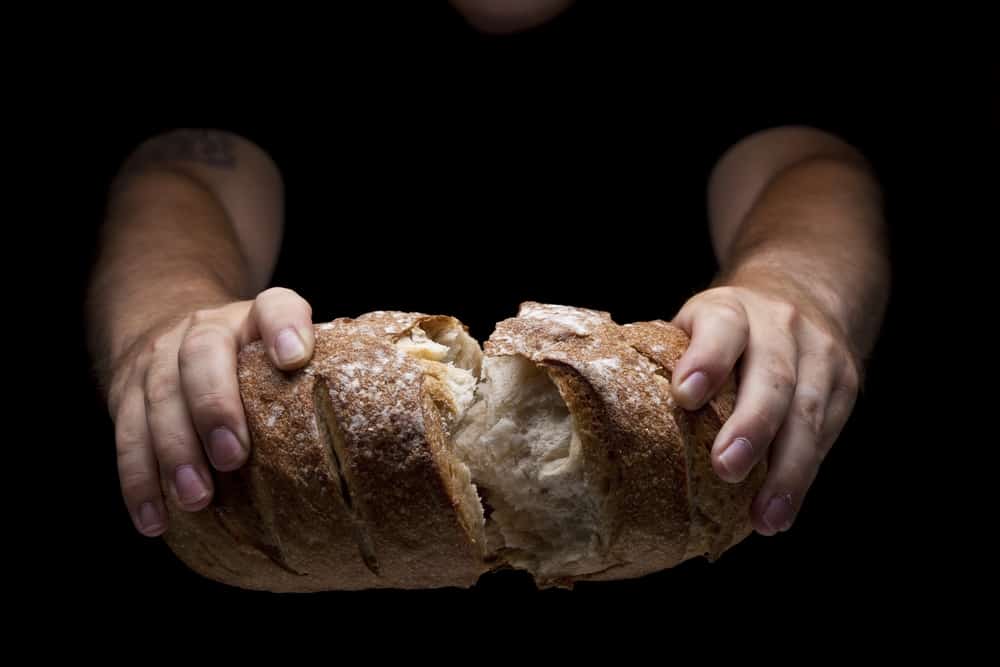Thanksgiving may be the last communal and contemplative annual event in North America.
Most people, whether they’re religious or not, recognize that gratitude is a good thing. And most of us, even in strained circumstances or in the middle of a crisis, can find something to be thankful for. We discover, when we turn our attention to the mercies and graces that we normally take for granted in our lives, that we are richer–materially, spiritually, and relationally–than we had realized. And that puts our present needs and trials into a different perspective.
This is really the essence of a contemplative act: paying deliberate close attention, for a period of time, to something that would likely otherwise escape our notice. The nature of the Thanksgiving holiday tends to remind us of the importance of the people we love, the relative wealth and freedom we enjoy, and the goodness of God in providing glorious food that is both nourishing and delightful. Some also revel in a cornucopia of football games, others at the start of another basketball or hockey season. Most of us make an effort to be with family, and sometimes that effort entails putting aside, for the time being, and as best we can, the irritations or grievances that normally afflict our relationships.
For a moment, we are content with what we have. Briefly, we rejoice in having more than enough, instead of clamoring for more. Most of the time, we are so focused on accumulating more that we forget we already have enough. This moment of shared contemplation reminds us of the good in our lives, a good that is ratified and increased by sharing it with others.
Opening our eyes to deliberately see who and what we have; our ears to hear the casually affectionate words of the ones we gather with; our nostrils to inhale the rich odor of the food as it cooks, and later, our mouths to taste it–this is how we are thankful. It is a truly impoverished soul who can pay this kind of attention to the reality of his or her world and not give thanks.
But there are such impoverished souls. There are truly impoverished people among us–people who do not have the luxury of clamoring for more but must continually strive toward an elusive enough. There are children who will get through the weekend without enough, and go to school without breakfast when the holiday is done. There are homeless men and women who will hunker down, shivering and hungry for a few days because the passersby who usually give them a little money are all camping out in Grandma’s living room waiting for the bird to finish roasting. People who have ended up on the perimeter of society because of mental illness, addictions, or age will battle their demons alone, profoundly aware that others can be found in rooms full of light and warmth and largesse, rooms where they themselves are not welcome.
If we, who have more than enough, can look around and recognize with grateful hearts how truly wealthy we are, this is very good. But it’s not enough. It’s only a beginning.
A gratitude that does not prompt us to give is hardly gratitude at all. Being must always, if it is real, give way to doing.
Gratitude that does not prompt us to give is hardly gratitude at all. Being must always, if it is real, give way to doing. When we open our eyes to truly see how blessed we are, we should also open them to see the real needs of our brothers and sisters. When we open our hands to receive the good gifts that God showers upon us, we must also open them to give of that goodness to others. If we open our hearts to receive God’s love for ourselves, we must also open them to admit into our affections those who might be thought unlovable.
If we give thanks and do not then thankfully give, our thanksgiving is revealed as merely a counting of our wealth, an act of hoarding rather than of gratitude.
The good news, news that would be confirmed by every cheerful giver, is that thankful giving increases our own gratitude. We become more grateful, as we give because we understand more clearly just how rich we are. We begin to value, to an increasing degree, what we have or have taken for granted. Giving sets us free from the tyranny of the things we own – the things that often own us. This is as true of our time, energy, and affections as it is of material goods.
Giving reminds us that all we possess was a gift in the first place, and not merely the result of our own efforts or excellence. It places in proper context those efforts as, themselves, acts of gratitude, or even worship, rather than self-sufficiency. It gives expression to the salvation of our own souls. It reminds us that every man is our brother, every woman our sister, every child our son or daughter. The family to which we belong is enormous and eternal.
And that, surely, is worthy of thanksgiving.
If anyone has material possessions and sees his brother in need but has no pity on him, how can the love of God be in him? Dear children, let us not love with words or tongue but with actions and in truth. This then is how we know that we belong to the truth…
1 John 3:17-19a
 Greg Paul is the author of Simply Open: A Guide to Experiencing God in the Everyday. He is also a pastor and member of Sanctuary (Toronto), a ministry where the wealthy and poor share their experiences and resources daily and care for the most hurting and excluded people in the city. Greg, his wife Maggie, and their four children live in Toronto.
Greg Paul is the author of Simply Open: A Guide to Experiencing God in the Everyday. He is also a pastor and member of Sanctuary (Toronto), a ministry where the wealthy and poor share their experiences and resources daily and care for the most hurting and excluded people in the city. Greg, his wife Maggie, and their four children live in Toronto.



